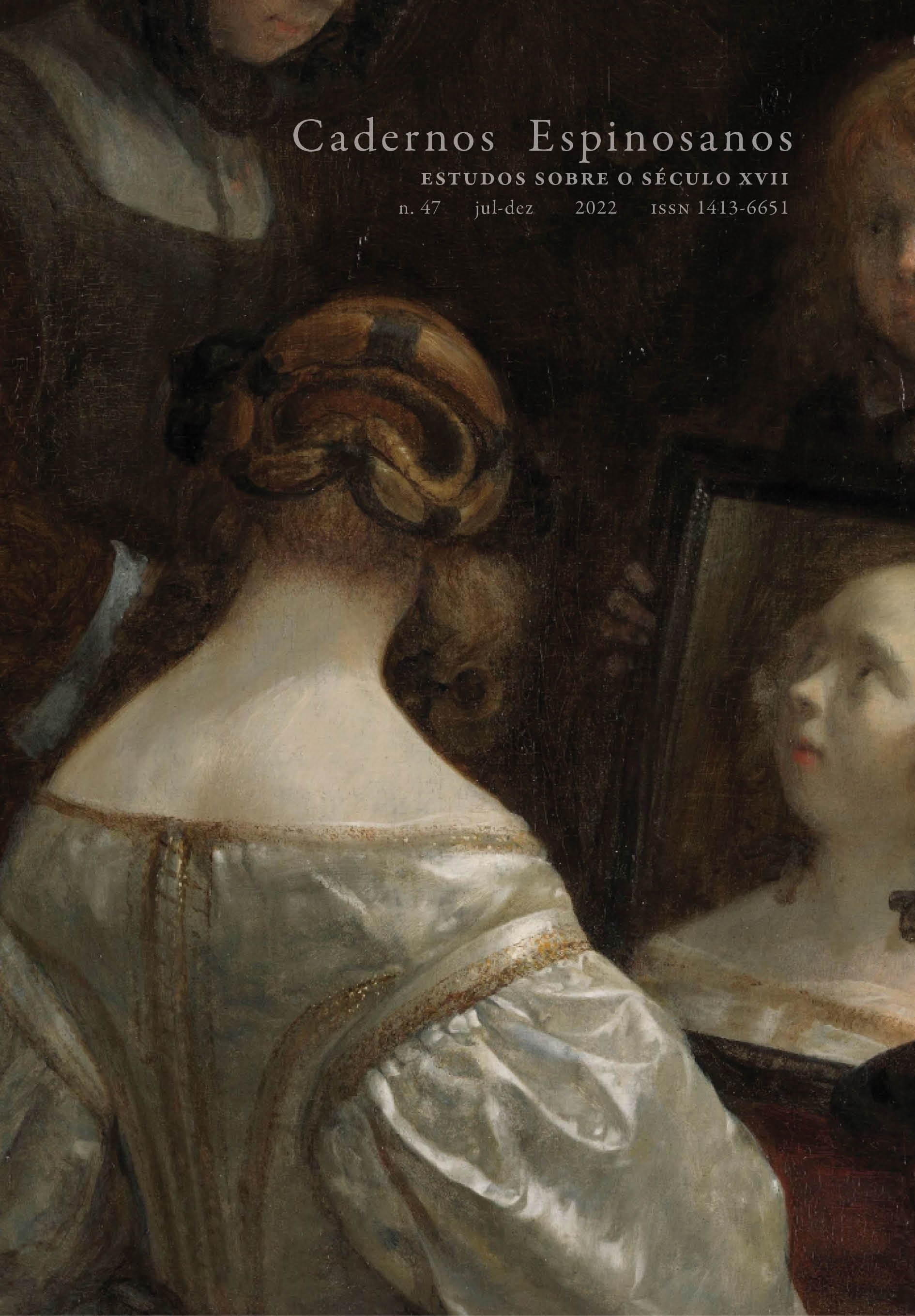Is it possible to think the political field on the basis of Descartes’ philosophy?
DOI:
https://doi.org/10.11606/issn.2447-9012.espinosa.2022.206392Keywords:
Descartes, Politics, Will, Freedom, Generosity, MoralAbstract
This article seeks to debate whether it is possible to think the political field based on Descartes’ thought. In general, it is considered that: 1) the theme would have been practically ignored by Descartes; 2) there are indications of what the philosopher thinks about this theme, both in his correspondence and throughout his work. Our position is close to the second alternative, because Descartes would have given a place to the political field through the implications and developments related to the union of the soul and the body. More specifically, through the role of final causality for the practical action of human beings, whether in moral or in politics. In this sense, the concepts discussed in The passions of the soul and in his correspondence with Princess Elisabeth can be illuminating. Thus, our reading is that in Descartes a political field emerges based on the exercise of reason and free will.
Downloads
References
ABBAGNANO, N. (1998). Dicionário de filosofia. São Paulo: Martins Fontes.
ANDRADE, E. (2017). Sobre a generosidade: certeza, ação e paixão na ética cartesiana. São Paulo: Edições Loyola.
CASSIRER, E. (1992). A filosofia do iluminismo. Campinas: Editora da Unicamp.
DESCARTES, R. (1973). Discurso do método; Meditações; As paixões da alma; Cartas. In: Os Pensadores Vol XV. São Paulo: Abril Cultural.
DESCARTES, R. (1901). Œuvre de Descartes - v. IV. ADAM, C.; TANNERY, P. (Ed). Paris: Léopold Cerf.
DESCARTES, R. (2001). Medicina dos afetos - Correspondência entre Descartes e a princesa Elisabeth da Boémia. Oeiras: Celta Editora.
DESCARTES, R. (2006). Princípios da filosofia. Tradução: João Gama. Lisboa: Edições 70.
DESCARTES, R. (2018). Discurso do método & Ensaios. São Paulo: Editora Unesp.
FORLIN, E. (2017). A concepção moral de descartes na carta a Mesland. Revista de Filosofia do IFCH da Universidade Estadual de Campinas, v. 1, n. 2., jul./dez., p. 3 - 17.
FORTES, L. R. S. (1986). O iluminismo e os reis filósofos. São Paulo: Brasiliense.
GOYARD-FABRE, S. (1973). Descartes et Machiavel. In: Revue de Métaphysique et de Morale, 78e Année, n. 3 (Juillet-Septembre), p. 312- 334.
GUENANCIA, P. (1983). Descartes et l’ordre politique. Paris: PUF.
GUEROULT, M. (2016). Descartes segundo a ordem das razões. São Paulo: Discurso Editorial.
HOBSBAWM, E. (1996). The age of revolution. New York: Vintage Books.
MAQUIAVEL, N. (2010). O príncipe. São Paulo: Martins Fontes.
MARION, J.-L. (1991). Questions cartésiennes. Paris: PUF.
MATOS, O. C. F. (1999). O iluminismo visionário: Benjamin, leitor de Descartes e Kant. São Paulo: Brasiliense.
OLIVEIRA, A. (2013). Descartes - O cortesão exilado: política e paixão. Tese (Mestrado) - FFLCH-USP. São Paulo: 192f.
REGNAULT, F. (1967). La pensée du prince. In: The Cahiers pour l’Analyse and Contemporary French Thought, n. 6 (January-February), article 2, p. 23-52. Disponível em: http://cahiers.kingston.ac.uk/vol06/cpa6.2.regnault.html Acessado em: 02/01/2021.
SOUZA, M. G. (2002). Natureza e Ilustração: sobre o materialismo de Diderot. São Paulo: Editora unesp.
Downloads
Published
Issue
Section
License
Copyright (c) 2022 Abel Beserra

This work is licensed under a Creative Commons Attribution-NonCommercial-ShareAlike 4.0 International License.
Autores que publicam nesta revista concordam com os seguintes termos:
- Autores mantém os direitos autorais e concedem à revista o direito de primeira publicação, com o trabalho simultaneamente licenciado sob a Licença Creative Commons Attribution que permite o compartilhamento do trabalho com reconhecimento da autoria e publicação inicial nesta revista.
- Autores têm autorização para assumir contratos adicionais separadamente, para distribuição não-exclusiva da versão do trabalho publicada nesta revista (ex.: publicar em repositório institucional ou como capítulo de livro), com reconhecimento de autoria e publicação inicial nesta revista.
Authors who publish in this journal agree to the following terms:
b. Authors are authorized to take on additional contracts separately, to non-exclusive distribution of the article published in this journal (ex.: to publish in institutional repository or as part of a book), with an acknowledgment of its initial publication in this journal.
How to Cite
Funding data
-
Fundação de Amparo à Pesquisa do Estado de São Paulo
Grant numbers 2020/03010-0


